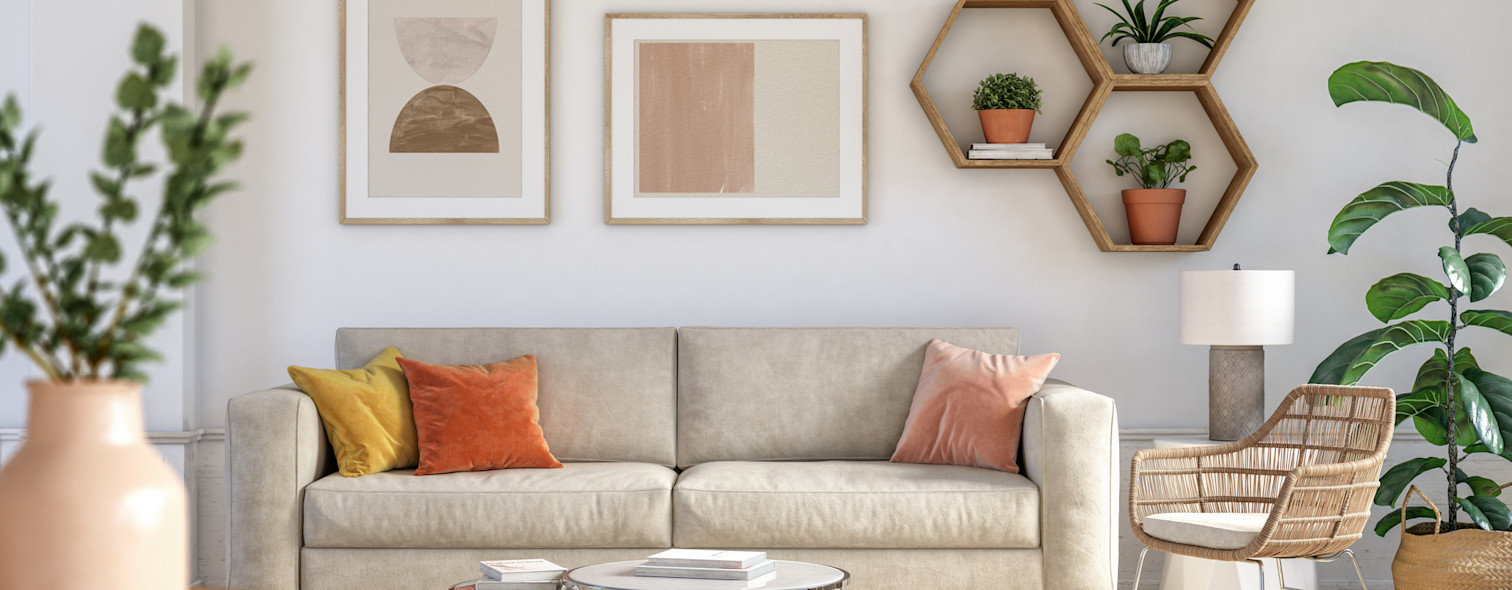
FAQ
Short-term rentals
If you are considering putting your home to income through short-term rentals, this section is designed to give you clear and up-to-date answers to the most common questions.
You will find practical information on regulations, management, tax aspects, and operational requirements to get you started in an informed and safe way.
Whether you are a novice owner or an already experienced host, here you can delve into all the key points to better manage your business.
If you would like to learn more about the services offered by Wonderful Italy for the complete management of a home on the short-term rental market, please contact us.
What are short-term rentals?
Short-term rentals are leases of no longer than 30 days, intended primarily for tourist or short-stay purposes. This formula allows landlords to flexibly put their homes into income without long-term constraints.
In Italy there are two main ways to rent a property on a short-term basis:
Tourist leases.
Vacation rentals.
What is a holiday home?
A vacation home is a non-hotel accommodation facility. It can be operated either in entrepreneurial or nonentrepreneurial form, but still requires specific fulfillments:
Submit the SCIA through the SUAP (Single Desk for Productive Activities) of the municipality.
Transmitting guest data to public safety authorities (Accommodation Portal).
Communicate tourist flows for ISTAT purposes.
Display the price declaration forms issued by the municipality.
Those who run vacation rentals as businesses must also fulfill all tax and accounting obligations required of businesses. Vacation rentals often offer ancillary services (housekeeping, linen) and are subject to specific regional regulations.
What is tourist leasing?
Tourist lease, or short lease, is a contract that allows a property to be rented for residential use for a maximum of 30 consecutive days per guest. It is regulated by Article 4 of Decree Law 50/2017 (converted into Law 96/2017).
Main features:
Maximum duration: 30 days for the same guest.
Landlord: natural person acting outside a business activity, up to a maximum of four properties.
Ancillary services allowed: final cleaning and linen supply. Additional services (breakfast, guides, transfers) result in classification as an accommodation business.
Mandatory requirements:
Enter into a written contract (even unregistered if less than 30 days).
Communicate guest data within 24 hours to the Lodging Portal of the Police Headquarters (Art. 109 TULPS).
Comply with any local regulations (e.g., CIN requirement or regional code).
Report tourist flows for statistical purposes.
Display the National Identification Code (CIN), mandatory from 2024, both physically and online.
Equip the home with safety devices such as fire extinguisher and gas detector.
Which homes are suitable for short rentals?
The most popular homes are those that are well-maintained, tastefully decorated, and equipped with modern amenities. A neglected home receives negative reviews, reducing online visibility and future bookings. Investing in quality is key to being competitive.
What are the advantages of short-term rentals?
Flexibility: decide when to use the house for yourself.
Absence of default risk: payments occur before or at check-in.
Potential for greater profitability, especially in tourist areas with high demand.
How much do short-term rentals yield?
Profitability varies by location, seasonality, property quality, and rate management. The main advantages remain flexibility and payment security, which often make them more attractive than traditional rentals.
What bureaucratic obligations must be fulfilled?
Submit the SCIA (if vacation home).
Obtain and report the CIN or any regional codes.
Register guests with the Lodging Portal of the Police Headquarters.
Communicate ISTAT data on tourist flows.
Collect and remit tourist tax, where applicable.
What are the channels for finding guests?
OTAs (Online Travel Agencies) such as Airbnb, Booking.com, Vrbo, and Expedia enable them to reach millions of travelers worldwide, providing broad visibility and a secure booking system.
How much do OTAs cost?
OTAs retain a commission that typically varies between 10% and 20% depending on the platform.
What are the other costs of short rentals besides OTAs?
Utilities (water, electricity, gas).
Wi-Fi.
Condominium fees (if any).
Professional cleaning after each stay.
Routine and extraordinary maintenance.
Specific insurance (damage and third-party liability).
Careful management of these costs is critical to maintaining profitability.
What taxes are paid?
Income from short term rentals can be taxed under the dry coupon, which offers a subsidized rate:
First property: 21%.
Second to fourth: 21% remains on the first, 26% applies on the others.
With more than four properties: entrepreneurial activity is presumed, you can no longer use dry coupon and must open VAT registration with ordinary taxation.
You must also collect and pay the tourist tax (where applicable) and declare annual income even if you choose dry coupon.
Are there any endowments that the house must have?
By law, some safety equipment is needed (e.g., fire extinguishers, gas detectors). To be competitive, it is recommended to offer:
Air conditioning.
Efficient heating.
Washing machine.
Fully equipped kitchen.
Comfortable beds and quality linens.
Fast Wi-Fi.
Parking.
TV and other amenities.
Thoughtful amenities enhance the experience and increase positive reviews.
Can remote check-in be done?
Yes, remote check-in is possible today, but with strict rules. As of 2025, thanks to the Lazio Regional Administrative Court ruling, self check-in (keybox, smart locks) is again allowed, as long as the guest's identity is verified.
Specifically, it is mandatory to:
Check and register the ID.
Verify the match between face and document (e.g., with selfie or video call).
Report the data to the Accommodation Portal within 24 hours of arrival.
The use of advanced technologies (OCR, biometrics, video ID) allows everything to be managed digitally, providing security and offering more flexibility to guests.
In Italy for passion
We are the largest Italian hospitality, in terms of number of directly managed holiday homes. In our business we support the entrepreneurial spirit of local operators, because we believe that welcoming tourists is a fundamental resource for the development of the territory.
We are active in Sicily, Sardinia, Puglia, Campania, Emilia-Romagna, Liguria, Piedmont, Venice, Lake Garda and Lake Como with a portfolio of over 2400 homes, constantly growing.